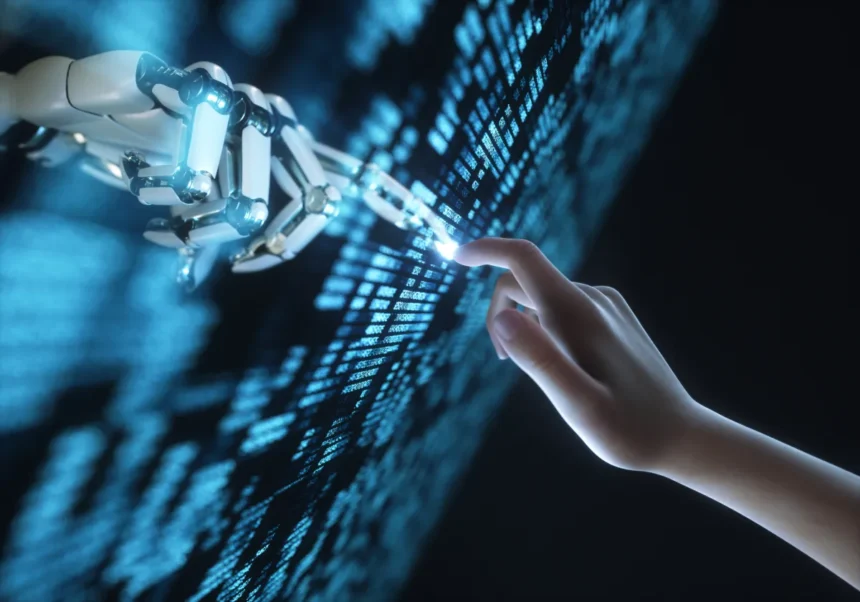Artificial Intelligence (AI) is revolutionizing the way we work, promising efficiency and innovation. But is our increasing reliance on generative AI making us less capable thinkers? A recent study conducted by researchers from Microsoft and Carnegie Mellon University suggests that AI dependency might be eroding our critical thinking skills, raising concerns about the long-term implications for workers.
The Shift from Thinking to Verifying
The study highlights a crucial shift in how professionals use AI in the workplace. Instead of engaging in deep, analytical thought, many workers now focus on verifying AI-generated content. This shift means that rather than creating, evaluating, and analyzing information independently, employees are merely checking whether AI’s output is “good enough.”
The paper warns: “Used improperly, technologies can and do result in the deterioration of cognitive faculties that ought to be preserved.” When humans intervene only when AI responses appear insufficient, they miss out on regular opportunities to practice and refine their judgment. Over time, this atrophy of cognitive “musculature” leaves workers less prepared to handle complex challenges when AI inevitably fails.
In simple terms, the more we rely on AI to think for us, the worse we become at problem-solving on our own.
How Are People Using Generative AI at Work?
The study analyzed responses from 319 professionals who use generative AI at least once a week. Participants shared three primary ways they integrate AI into their workflows:
- Content Creation – Writing formulaic emails, drafting reports, or generating marketing copy.
- Information Retrieval – Researching topics, summarizing lengthy documents, or collecting data.
- Decision Support – Seeking advice, structuring arguments, or visualizing data trends.
Participants were then asked whether these tasks required critical thinking and if AI made them put in more or less effort when analyzing information.
Confidence in AI vs. Confidence in Oneself
One of the most eye-opening findings was the relationship between confidence and critical thinking. Those who trusted AI more tended to exert less mental effort in reviewing and evaluating AI-generated content. Conversely, participants who had more confidence in their own abilities were more likely to critically assess AI responses before accepting them.
For instance, one participant used ChatGPT to draft a performance review but rigorously double-checked the AI’s output to ensure accuracy. Another respondent adjusted AI-generated emails to align with workplace cultural norms, recognizing that AI might not fully understand hierarchical nuances. Many participants also cross-referenced AI responses with YouTube videos, Wikipedia, and other sources—ironically defeating the purpose of using AI for efficiency in the first place.
The Danger of Blind AI Trust
While AI can significantly enhance productivity, it’s crucial to recognize its limitations. The study found that many users were not fully aware of AI’s shortcomings, which can lead to complacency. Workers who assume AI outputs are always correct risk making poor decisions based on flawed information.
“Potential downstream harms of GenAI responses can motivate critical thinking, but only if the user is consciously aware of such harms,” the study notes.
This suggests that AI isn’t inherently making us dumber—but overreliance without a critical mindset can weaken our ability to think independently.
Striking a Balance: AI as a Tool, Not a Crutch
Generative AI can be an incredible asset, but it should complement human intelligence, not replace it. To maintain strong cognitive abilities, workers must actively engage with AI-generated content rather than passively accepting it. Here are a few strategies to ensure AI enhances rather than diminishes critical thinking skills:
- Cross-Verify AI Responses – Always validate AI-generated information with credible sources.
- Engage in Active Learning – Use AI as a starting point but take time to analyze and refine content manually.
- Stay Skeptical – Question AI’s outputs and consider alternative perspectives.
- Understand AI’s Limitations – Recognize that AI is trained on historical data and may carry biases or inaccuracies.
Conclusion: The Future of Human Intelligence in the AI Era
AI is here to stay, and its role in the workplace will only grow. But as this study highlights, how we use AI determines whether it strengthens or weakens our cognitive abilities. If we mindlessly accept AI-generated content, we risk losing the ability to think critically. However, if we use AI thoughtfully—as a tool that supports rather than replaces independent thought—we can harness its power without sacrificing our intellectual edge.
The question isn’t whether AI is making us dumber—it’s whether we’re allowing it to. The key lies in how we choose to engage with this technology. Will we use it to sharpen our thinking or let it think for us? The choice is ours.










